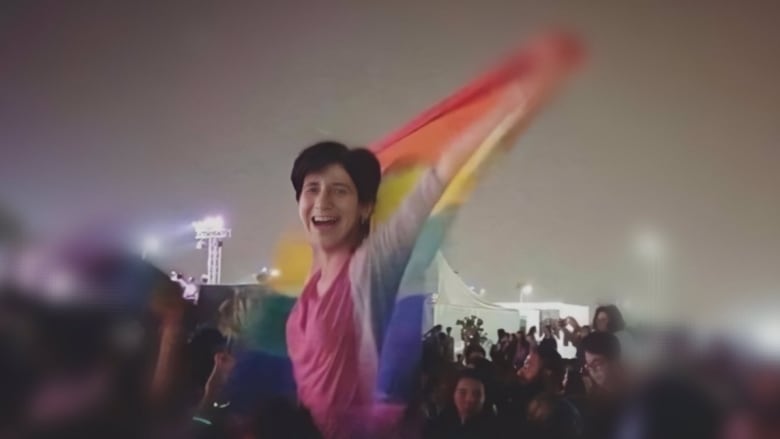
Last weekend, the world woke up to the tragic news that Egyptian LGBTQI+ rights activist Sarah Hegazi had taken her life in Ontario, Canada, where she sought asylum after suffering sexual violence, torture and false imprisonment in Egypt. She died at the age of 30.
The news sent shockwaves across Egypt and drew outrage from the country’s LGBTQI+ and human rights communities who blame her death on the current regime. The activist, who was openly gay, was arrested in 2017 for waving the rainbow flag during a Mashrou Leila concert in Cairo. In prison, Hegazi was allegedly tortured and sexually assaulted.
Following the three-month ordeal, Hegazi fled to Canada, but she never did manage to recover from the trauma. The activist reportedly suffered from post-traumatic stress disorder that many believe led to her suicide, saying she felt as though she was still stuck in prison during a 2018 interview with CBC.
The leftist political activist is also said to have suffered loneliness and estrangement in exile. These feelings were exacerbated following her mother’s passing a month after her arrival in Canada. “Home is not land and borders. It’s about people you love,” Hegazi told the Canadian network. “Here in Canada, I have [no] people, I have [no] family, I have [no] friends. So I’m not happy here.”
Hegazi’s death has revived calls for LGBTQI+ liberation in Egypt. Inspired by her courage, many are speaking out against systemic queerphobia in Egypt and raising awareness about the serious human rights violations gay and trans individuals face in the country and across the Arabic-speaking world.
In order to create safe spaces within Egypt’s social and political discourse for sexual and gender minorities, queer Egyptians should lead the conversation. Here are five LGBTQI+ activists you can follow to learn more about the movement in Egypt.
Shrouk El Attar
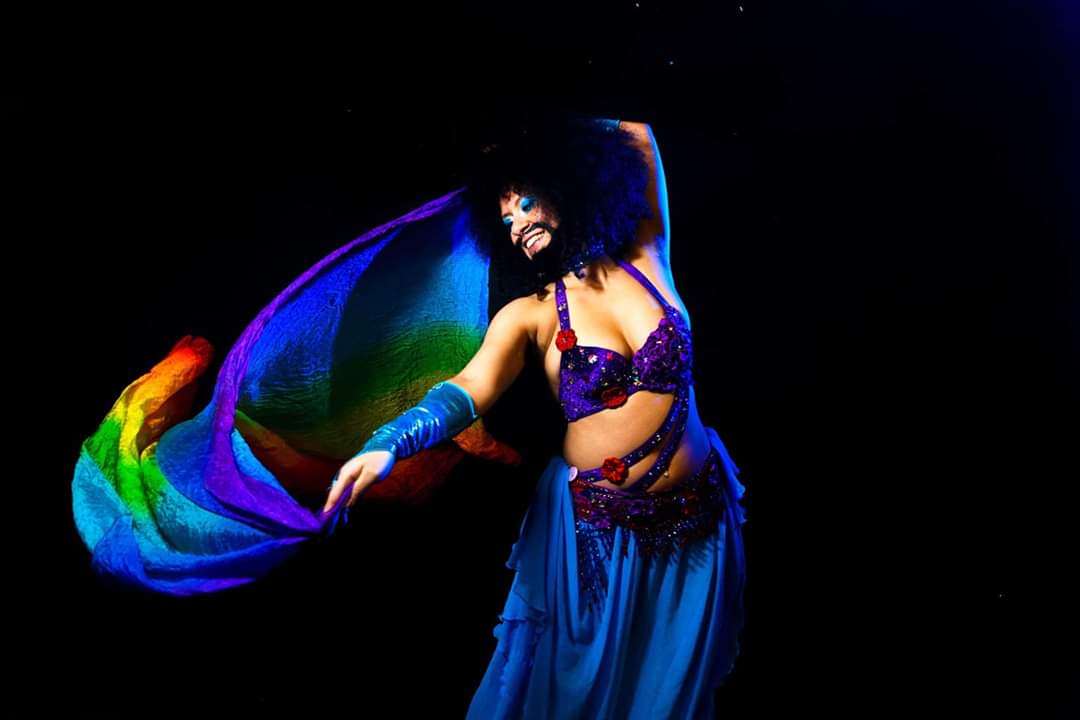
An electronic engineer by day, a belly dancer by night and a fierce human rights campaigner round-the-clock, Shrouk Al Attar is a UK-based Egyptian queer woman who, like many Arab and North African LGBTQI+ individuals, fled to the west seeking refuge from queerphobia in Egypt.
Her act, The Dancing Queer, in which she dons a beard and dances in drag, has become a powerful expressions of dissent and protest against homophobia and transphobia in conservative Arab culture.
In addition to raising awareness about the serious human rights violations against queer Egyptians, Al Attar uses the proceeds from the act to pay for legal fees for members of Egypt’s LGBTQI+ community who are imprisoned for their sexual orientation or gender identity.
She is also a fierce defender of refugees and asylum seekers in the UK. Her work on behalf of refugee communities has earned her the title Young Woman of the Year by UNHCR, the UN Refugee Agency & Migrants Organise in 2018, as well as a spot on BBC’s 100 Women.
Dalia Al Faghal
Largely considered the first Egyptian woman to ever publicly identify as gay, Dalia Al Faghal is recognized for breaking the social taboo and forcing open the discussion surrounding LGBTQI+ rights in the country.
In 2017, Al Faghal declared to the world her love for her girlfriend in a social media post, shortly after, she received death threats and cyber attacks, and soon became the subject of a character assassination campaign by local Egyptian media.
She is one of the few people to survive Egypt’s ongoing crackdown against sexual and gender minorities, but resumes her activism from Sweden, where she is based now.
Faghal is also one of Egypt’s most vocal feminists today. She was among the leading voices that led to the dismissal of Egyptian TV host Yours Fouda from German broadcaster Deutsche Welle for sexual misconduct, after alluding to his unwanted advances and in widely circulated Facebook post.
Malak El Kashif
Malak El Kashif made headlines last year after she was arrested for participating in an anti-government protest after a fire at the Cairo Railway station killed 22 people and injured over 40.
The trans woman’s arrest sparked outrage and drew condemnation from Egypt’s human rights community, especially after the media reported that she was detained in a men’s detention facility, raising fears for her safety.
She was released after more than 120 days in pretrial detention, where she reportedly suffered sexual violence. Her visibility and activism on behalf of Egypt’s most at-risk groups have earned her a place in the country’s progressive political spaces.
For over six years, El Kashif used her platform to raise awareness about trans issues, gender dysphoria and gender identity and has helped dispel heteronormative discourses in Egypt’s progressive circles and beyond.
El Kashif is also committed to intersectionality, with a proven track record of advocacy and activism for democracy, social justice and economic equality.
Iman LeCaire

An icon of New York’s queer nightlife scene, Iman LeCaire has solidified her status as one of the city’s visible trans women of color. She is also a beloved entertainer and a committed activist.
She has used her platform to demand justice for slain Black trans women, as part of the ongoing #BlackTransLivesMatter movement, which is quickly gaining momentum within the anti-racist protest movement sweeping the US.
But it is LeCaire’s personal journey from Egypt that truly makes her one of the most important voices to include in the country’s civil rights discourse and center when it comes to LGBTQI+ rights. In Egypt, the actress, dancer and performer survived sexual, verbal and physical abuse few could overcome—from police harassment, false imprisonment, to an attempt on her life by her own brother who once tried to stab her.
“They would make fun of me, and tell me that I can never be a girl and that I can never be a woman. That I will always be a man and that I will always be that way. And [that I’m] going to go to hell, which made me so scared,” she recounts in a 2016 PAPER magazine interview.
And although LeCaire’s activism is universal, she continues to speak out against homophobia and transphobia in Egypt.
Ana Masreya
Brooklyn-based drag queen and LGBTQI+ activist Ana Masreya is a prolific figure in New York City’s gay nightlife, launching the scene’s first Egyptian-inspired cabaret. The show has become a community hub for Arabs and North Africans from across the sexual and gender spectrum in America as it celebrates Egyptian culture.
Masreya, who produces and performs in the show, is recognized for creating a space for other Arab and North African drag queens to offer their own interpretations of the art, honoring its storytelling tradition as an integral part of queer culture and expressing pride in their cultural heritage.
The drag artist has advocated for LGBTQI+ rights in Arab culture on and off the stage. Earlier this week, she helped organize a vigil for late Egyptian LGBTQI+ activist Sarah Hegazi, where many members of the city’s Arab and North African gay and trans communities opened up about their own experiences with homophobia and transphobia, including Mashrou Leila lead singer Hamed Sinno.
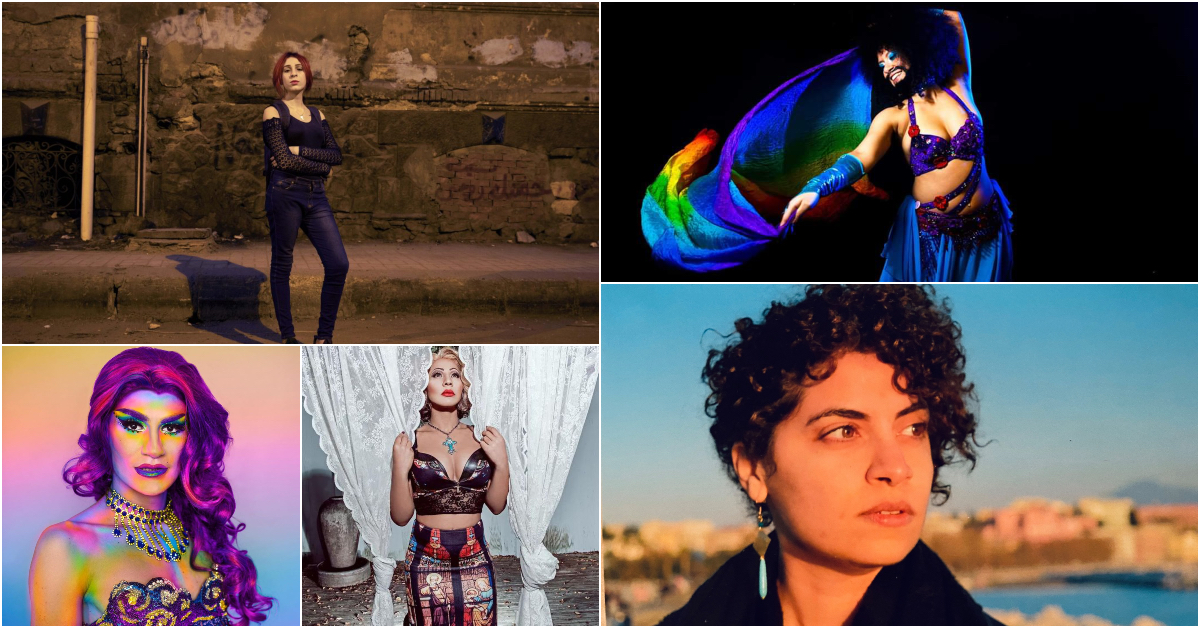



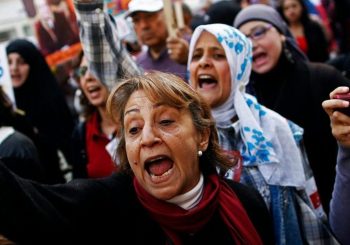
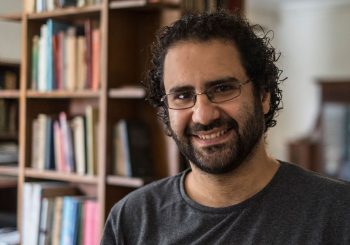
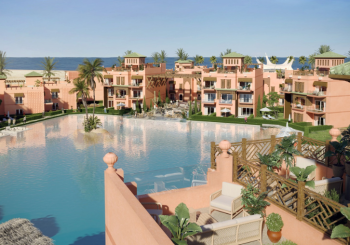
Comments (3)
[…] 5 Egyptian LGBTQ+ Activists to Celebrate This Pride Month […]
[…] 5 Egyptian LGBTQ+ Activists to Celebrate This Pride Month […]